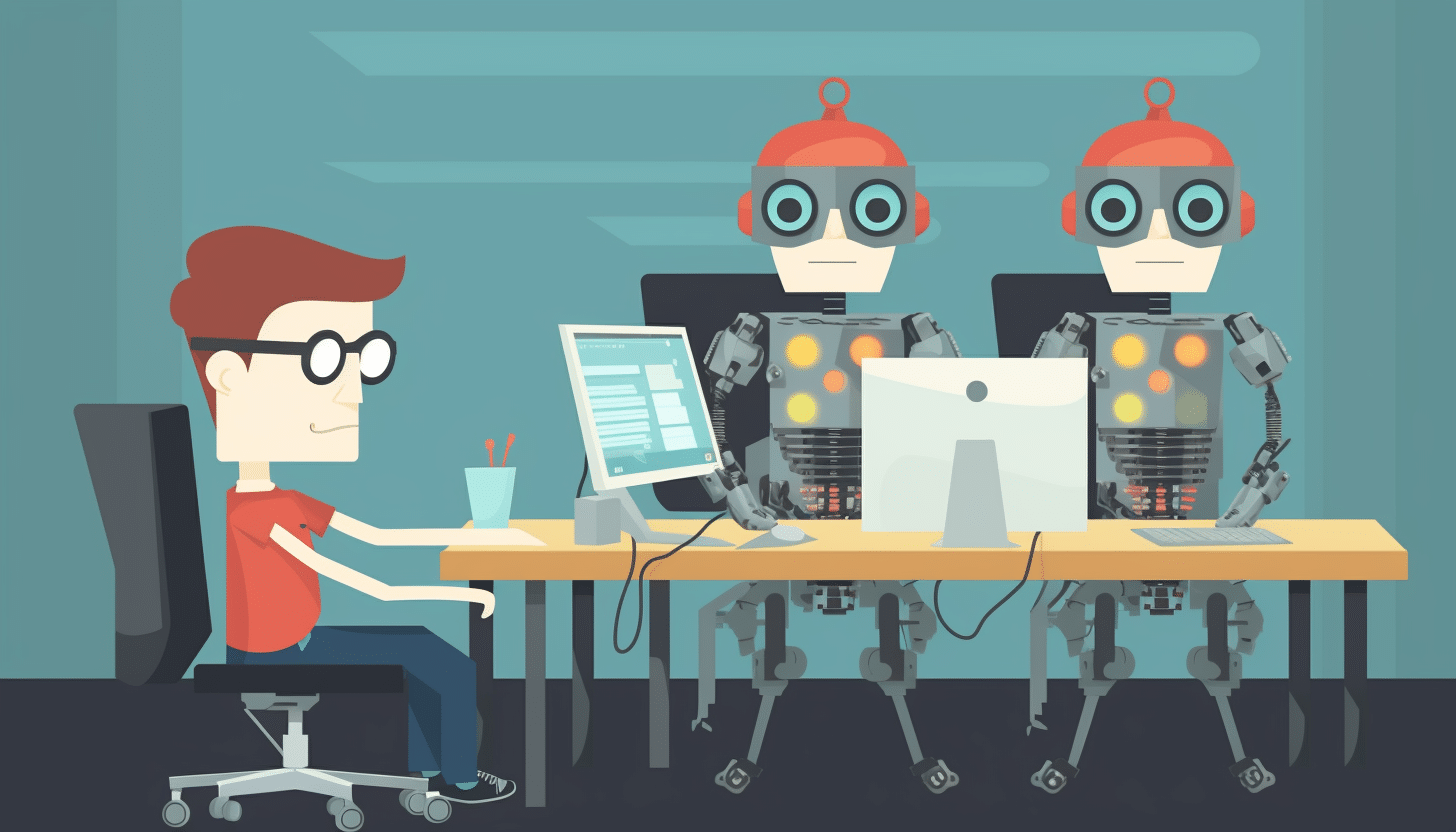
Five ways to reshape the customer-centric product development process
Building products quickly to meet customer needs is more important than ever, especially as customer expectations continue to evolve. According to a recent study from Zendesk, 70 percent of consumers spend more with companies that offer fluid, personalized, and seamless customer experiences. For IT leaders, it’s not sufficient to focus on building things as required, their first focus needs to be on building the right thing. This means establishing a customer-centric product development process that supports discovering what customers really need and bringing a valuable product to market that meets their needs.
The most effective way to bring customer-centric products to market is to develop them incrementally and iteratively, with experimentation to discover how to best fulfill customer needs and with fast feedback to improve the quality of the product.

Building high-performing tech teams from the ground up
Putting together a technical team from scratch isn’t quite as simple as setting up a few interviews and hiring the candidates that seem like they might be up to the job. Hasty decision-making often leads to unbalanced and misaligned teams, which is why research, planning and patience are all essential when developing a new branch of a business.
When the person responsible for constructing the team is new themselves, this introduces an array of potential stumbling blocks, as they will begin work on the project with a lack of understanding of organizational culture and the overall business structure.

Developer enablement tools are changing the workplace -- but not necessarily for the better
A new study from O'Reilly Media looks at how developer enablement tools including GitHub Copilot and ChatGPT are impacting productivity within the workplace.
And the news isn't all positive; almost half of all respondents (46 percent) say they are struggling with AI-assisted low and no-code tools that have steep learning curves and barriers to entry.

ChatGPT as a development tool? Yes, if used judiciously
Despite the concerns of many programmers about ChatGPT and other generative AI making our profession irrelevant, the software industry will always need skilled human developers to solve hard problems. I’m certainly not ignoring ChatGPT’s ability to generate solid code. It definitely can. But, it’s not anywhere near ready to produce code without human supervision. Its developers are working to improve its accuracy, but ChatGPT currently has a hallucination problem, where it creates content -- including code -- that may look good at a cursory glance but isn’t actually correct.
That said, in the hands of an experienced programmer, ChatGPT can be a powerful development tool that significantly reduces the amount of time it takes to develop a solution. Note, "experienced" is not a throwaway adjective here. For code generation, ChatGPT is a tool that novice developers should employ carefully. You need good instincts for discerning what’s well-formed code and what isn’t, and those skills grow with years of development experience.

Wasted developer time costs businesses billions
UK businesses are inadvertently wasting over £10.4 billion ($12.97 billion) each year as developers manually carry out routine operations tasks that could be automated.
Software delivery platform Harness calculates the figure based on the fact that developers spend only around 52 minutes a day on actual coding.

Compliance professionals want no-code platform solutions
Among governance, risk, and compliance (GRC) professionals responding to a new survey, 69 percent say that deploying a GRC platform that doesn't need developer support would improve their role.
The study from Onspring finds that a worrying 73 percent of respondents still needed a developer to update and administer their GRC programs, indicating a clear need for technologies that don't require developer input.

The key to developer job satisfaction: Give them a handle on observability
The developer talent gap is very real. According to IDC, there will be a global shortfall of four million developers by 2025. Other analyses are more dire, estimating the current shortage at 40 million developers worldwide and expected to reach more than 85 million by 2030.
While the U.S. Bureau of Labor Statistics currently indicates there are more than 1.6 million developers employed in the U.S., this number is expected to grow by 25 percent to more than two million by 2031, much faster than the average for all occupations. Despite this growth, developer demand is expected to exceed skills availability for many years to come. There are numerous causes for this, including the rapid growth of digital transformation, increasing software development complexity and more. But one thing is for certain - the fight for talent is going to be fierce, and it’s going to be essential for organizations to focus on keeping their developer talent happy and right where they are.

86 percent of developers knowingly deploy vulnerable code
According to a new study, 86 percent of software developers and AppSec managers surveyed have or know someone who has knowingly deployed vulnerable code.
What's more the study from Checkmarx shows 88 percent of AppSec managers surveyed have experienced at least one breach in the last year as a direct result of vulnerable application code.

Sharing deployment best practices helps all developers
Developers are constantly innovating better and more efficient ways to deploy software, but not all teams are privy to the new strategies. We as a developer community need to eliminate all gatekeeping and share best practices. What benefits one team will help another, allowing us to continuously build on these improvements together.
Deployment velocity drives business value, but only if the software is reliable. Users won't care about receiving frequent updates if they don't work. Sharing deployment best practices can eliminate manual tasks and enable developers to focus on coding, leading to more reliable deployments and apps and more efficient processes.

Microsoft is bringing huge changes to app pinning and app defaults in Windows 11
Microsoft has unveiled plans for what it is referring to as "a principled approach to app pinning and app defaults in Windows". The company has outlined sweeping changes that are coming to Windows 11 that will give users greater control over their computers.
The updates mean that the pinning of apps to the Start menu, desktop and taskbar will respect user choices, and adjusting the default apps used to open specific file types will be much easier. Microsoft says that the changes -- which are due to hit the Dev Channel soon before making their way to everyone else -- will also benefit developers.

People first, technology second -- Why SaaS developers should embrace human-centered design
The recent fascination with AI, fueled by the release of ChatGPT and Google and Bing trying to catch up with their own language models, has SaaS developers and designers intrigued by the possibilities of what they can do with the burgeoning technology.
But the AI explosion in progress underscores a question that must be asked about any innovation: What place do humans hold in the development of technology intended to benefit them?

GitHub is introducing mandatory 2FA for all developers in new security drive
Starting next week, GitHub is going to require active developers on the site to enable at least one form of two-factor authentication (2FA). The security initiative will start with specially selected groups of developers and administrators on March 13.
Until the end of the year, GitHub will begin notifying those who have been selected of the 2FA requirement. As the year progresses, more and more users will be obliged to enable two-factor authentication.

Wanna know a secret? Ask a developer
Secrets are not just login credentials and personal data; they securely hold together the components of the modern software supply chain, from code to the cloud. And because of the leverage they provide they are much sought-after by hackers.
However, many breaches that occurred in 2022 show how inadequate the protection of secrets is. Research from automated detection specialist GitGuardian finds that one in 10 code authors exposed a secret in 2022.

Deploying at scale -- what does it mean and why does it matter? [Q&A]
One of the popular buzzwords in development circles in recent years has been 'deployment at scale'. Now, while it's nice to have a universally recognized term, opinions about what deployment at scale actually means tend to vary.
So what exactly does 'at scale' mean in the development community and how can companies define their own approach? We spoke to Adam Frank, VP, product and marketing at Armory.io, to find out.

Developer interest in AI and deep learning grows
New research from O'Reilly, looking at the most sought-after technology topics consumed by the 2.8 million users on its online learning platform, shows that there's been a 42 percent increase in interest in AI.
Interest in deep learning showed a 23 percent increase. Developers also increasingly searched for content related to transformers -- the AI model that's led to tremendous progress in natural language processing -- reflecting the impact of advancements in Open AI's GPT-3 and ChatGPT and the anticipation for upcoming offerings from Google, Meta, and others.
